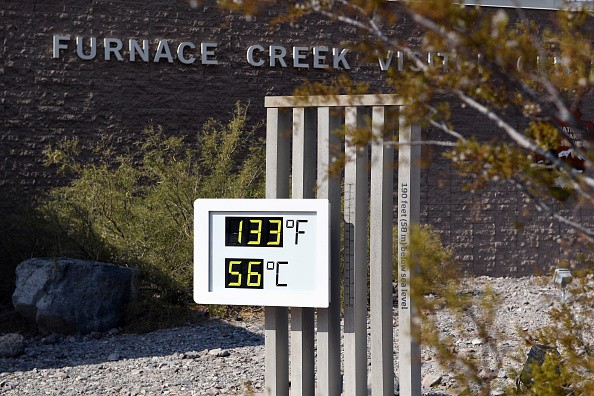The Secretary-General of the United Nations has declared 2021 'the make-or-break year' for climate action. Although this year is not yet over, a provisional report on the state of the planet indicates that we are almost breaking it.

Hottest Years on Record
The World Meteorological Organization (WMO) of the United Nations has estimated that the last seven years have been the hottest on record. Although scientists only have data for the first nine months of 2021, preliminary study indicates that it will likely be the fifth, sixth, or seventh hottest year of the seven.
However, the pattern since 2015 has been clear: there has been a fast and long-term increase in global warming, rising sea level, ocean warming, and acidity in only seven years.
According to the research, if present greenhouse gas emissions continue, the planet would warm by at least 1.5 to 2ºc by the end of the century. From January to September 2021, the world's average temperature were already roughly 1.09 °C higher than the pre-industrial standard, indicating that humans have no wiggle room remaining.
The UN Secretary-General, Antonio Guterres wrote that they are still substantially behind the track in meeting the Paris Agreement's targets.
He notes that this year has witnessed a rebound in fossil fuel emissions, rising greenhouse gas concentrations, and extreme human-enhanced weather events that have impacted health, lives, and livelihoods around the globe.
According to Guterres, limiting warming to 1.5 degrees Celsius will be unachievable until there are urgent, fast, and substantial reductions in greenhouse gas emissions, with devastating effects for people and the environment on which humans rely.
Also Read : Scientists: World Must Brace for Extreme Heat Due to Freakishly High Temperatures in US, Canada
COP26
The study was unveiled at the commencement of the United Nations Climate Change Conference, which is now taking place in Glasgow, Scotland. The summit, called COP26 for short, will ultimately determine how the world will develop at this critical juncture, therefore it's crucial that we know where we are.
Despite a worldwide epidemic that temporarily curbed emissions, greenhouse gas concentrations in the atmosphere reached all-time highs in 2020. According to the analysis, carbon dioxide has grown by 150 %, methane by 262 %, and nitrous oxide by 123 % since pre-industrial levels.
Climate statistics from the beginning of 2021 show that this year experienced a minor fall from La Niña, although this year still seems to be much warmer than the previous La Nia event in 2011.
Things aren't much better out at the sea. Warming, sea-level rise, and acidity are all becoming worse with the passage of time. Ocean acidification hasn't been this high in at least 26,000 years, according to the paper, and it's affecting the ocean's capacity to store carbon dioxide from the atmosphere, worsening the climate problem above the waves.
COP26 must be a watershed moment for people and the environment.

Climate Change
According to a new study, climate change will only increase the frequency and severity of extreme weather occurrences like these.
According to Taalas, countries must not only dramatically reduce their emissions but also prepare for the realities that are already in place.
Taalas claims that investing in climate adaptation is one of the greatest strategies to protect lives and livelihoods from future catastrophic weather disasters.
For more news, updates about extreme heat and similar topics don't forget to follow Nature World News!
© 2025 NatureWorldNews.com All rights reserved. Do not reproduce without permission.





